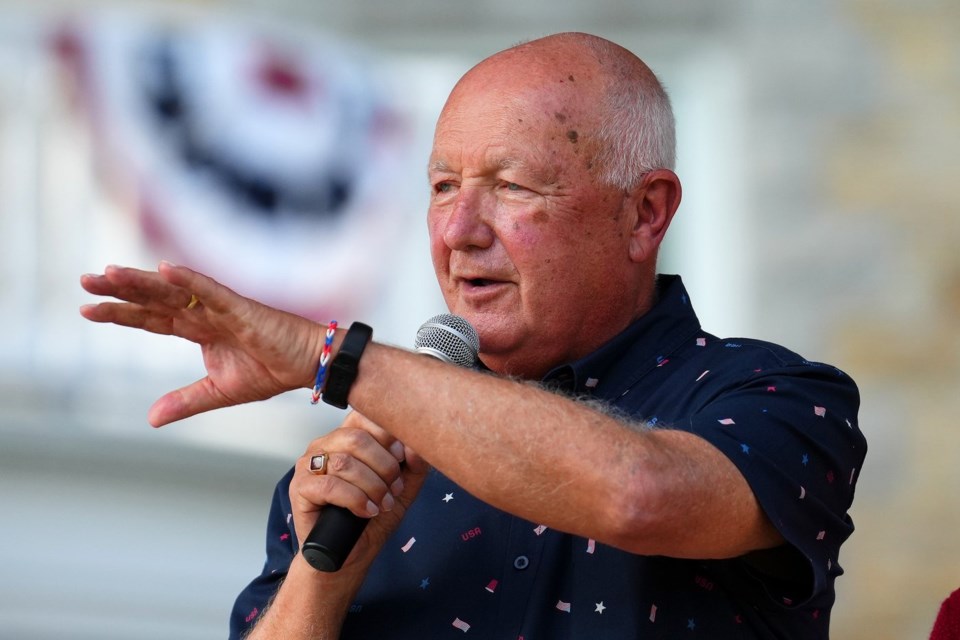Canadians avoiding travel to the United States and banning American alcohol are among the reasons U.S. President Donald Trump thinks the country is "nasty" to deal with, the U.S. ambassador to Canada said Monday.
Pete Hoekstra told a conference audience on Monday that such steps "don't send positive signals" about Canada treating the United States well.
Hoekstra was speaking at the annual Pacific NorthWest Economic Region Foundation summit in Bellevue, Washington.
The Canadian Press was provided with a recording of the ambassador's comments by the office of B.C. Premier David Eby, which said it received the audio from someone who was in the audience.
Eby said in a statement that Hoekstra's remarks show Canadians' efforts to stand up to Trump are "having an impact," and he encouraged people to "keep it up."
A statement from a spokesperson for the U.S. Embassy said later Monday that Hoekstra had also expressed "optimism" about the future of the relationship between the two countries during his remarks that lasted nearly an hour.
The email said Hoekstra also told the crowd there will be "more opportunity to grow this relationship in a much stronger, in a much bigger way than what we have today."
The ambassador made the remarks about some Canadians turning away from the United States in answer to a question from a conference moderator about what could be done to get people travelling again as Vancouver and Seattle prepare to host games as part of next year's FIFA World Cup.
"Canadians staying home, that's their business, you know. I don't like it, but if that's what they want to do, it's fine. They want to ban American alcohol. That's fine," he said.
"There are reasons why the president and some of his team referred to Canada as being mean and nasty to deal with, OK, because of some of those steps."
Hoekstra added that he "can get alcohol across the border if (he) wanted to."
"We go back and forth to Michigan and they don't check my car when I come back," he said, drawing laughs from the crowd.
Eby's statement in response to Hoekstra's remarks said people should keep buying Canadian products and keep their vacations Canadian.
"We won't take these attacks on our jobs, our economy and our sovereignty, lying down. We'll stand strong together," the premier said in the emailed statement.
B.C. is among the provinces that banned the sale of U.S. alcohol from government-run stores after Trump slapped steep tariffs on goods from Canada.
Trump's actions have prompted some Canadians to cancel their cross-border trips.
In March, the number of Canadians returning home by car from south of the border fell nearly 32 per cent compared to the same month last year.
It was the third consecutive month of year-over-year declines and the steepest plunge since the COVID-19 pandemic, according to Statistics Canada.
Return trips by air meanwhile fell 13.5 per cent year-over-year that month.
The statement from the U.S. Embassy said Hoekstra has expressed on several occasions that he sees provincial bans on U.S. alcohol as counterproductive to resolving broader issues between the two countries.
"In response to a question, Ambassador Hoekstra pointed out that the decision of some Canadian provinces to ban the sale of U.S. alcohol does not contribute to a positive relationship between our two countries," the statement said.
Still, it said the ambassador also emphasized his optimism.
This report by The Canadian Press was first published July 21, 2025.
Brenna Owen, The Canadian Press



